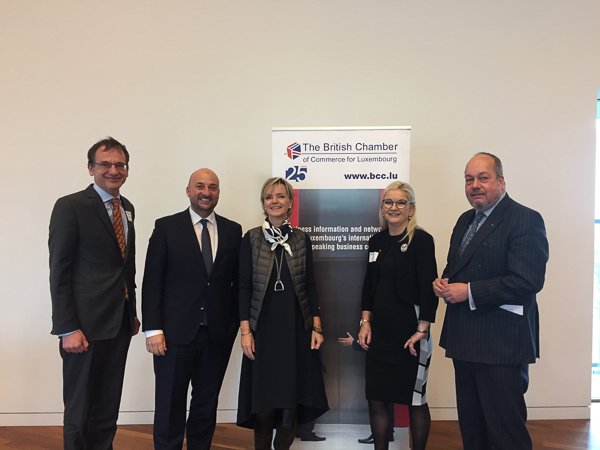
Deputy Prime Minister Etienne Schneider was the guest speaker at a lunch hosted by the British Chamber of Commerce at La Table du Belvedere in Luxembourg-Kirchberg on Wednesday 1 February for which a curious audience turned up to hear his update on Luxembourg’s forays into asteroid mining.
One year after Luxembourg announced its plans to establish a legal and regulatory framework to facilitate the commercialisation of space’s mineral resources, Minister Schneider stated that he hoped the enabling laws would be put forward within the next few months.
Luxembourg is an “early adopter” in this domain, preceded only by the United States of America, with whom Minister Schneider emphasised an important distinction. "The American Space Act of 2015 requires that 51% of investing companies’ capital comes from the US, whereas Luxembourg recognises that the capital may be found elsewhere than here," he explained.
According to Minister Schneider, Luxembourg is keenly interested in creating a collaboration of like-minded countries who will work together to harvest the rich opportunities the “final frontier” might provide.
He said that Luxembourg already derives 1.8% of its GDP from space-related activities — a number unmatched by any other economy.
“Luxembourg was a leader in this domain even in the 1980s when we first invested in satellites, and everyone questioned us then,” he said. “Now, nobody would dream of questioning the logic of taking that risk.”
In the face of scepticism, including his own when the idea was first put forward to him, Minister Schneider expanded on the opportunities space and asteroid mining presents not just for itself but also for how it will enrich and create other industries along the way.
“The long-term objective includes space mining, but in the shorter and medium terms, we are looking at technology developing in all kinds of ways along the way,” he said.
The effects will not only be felt in space. “Space exploration is already creating real benefits on earth thanks to the technological advances that it has produced,” said Minister Schneider. “I recently met a wine grower in Portugal who can tell from one grape to another which is ready for harvest and which is not, and he gets that information from space observation.”
Expanding on the possibilities for agriculture, among other industries, Minister Schneider elaborated on how information of this kind could, for example, help farmers to properly dose fertiliser and water with important environmental consequences.
Speaking of what may be directly harvested in space, it is possible that whatever is extracted may never even be brought back to earth. According to Minister Schneider, it costs €10,000 to send 1kg of material to space. Thus, 1kg of ice harvested from an asteroid could be not just converted to water for consumption by astronauts, but also converted to hydrogen fuel, creating interesting possibilities for expanding man’s reach within the solar system.
Transforming Luxembourg into the “Silicon Valley of Space” may take some time but Minister Schneider, for one, is undaunted.








